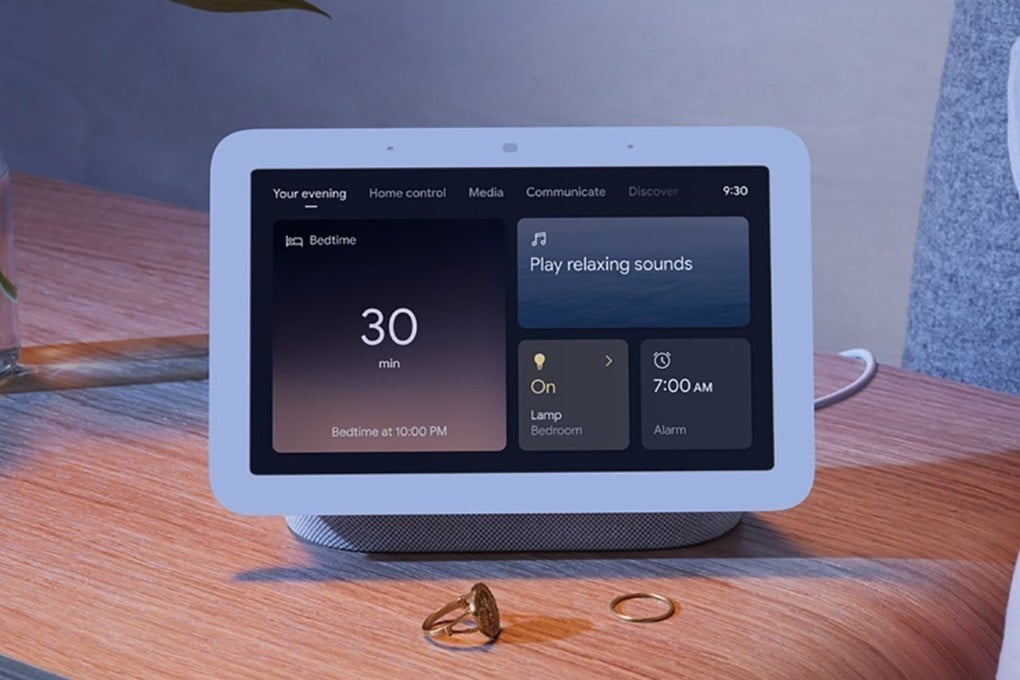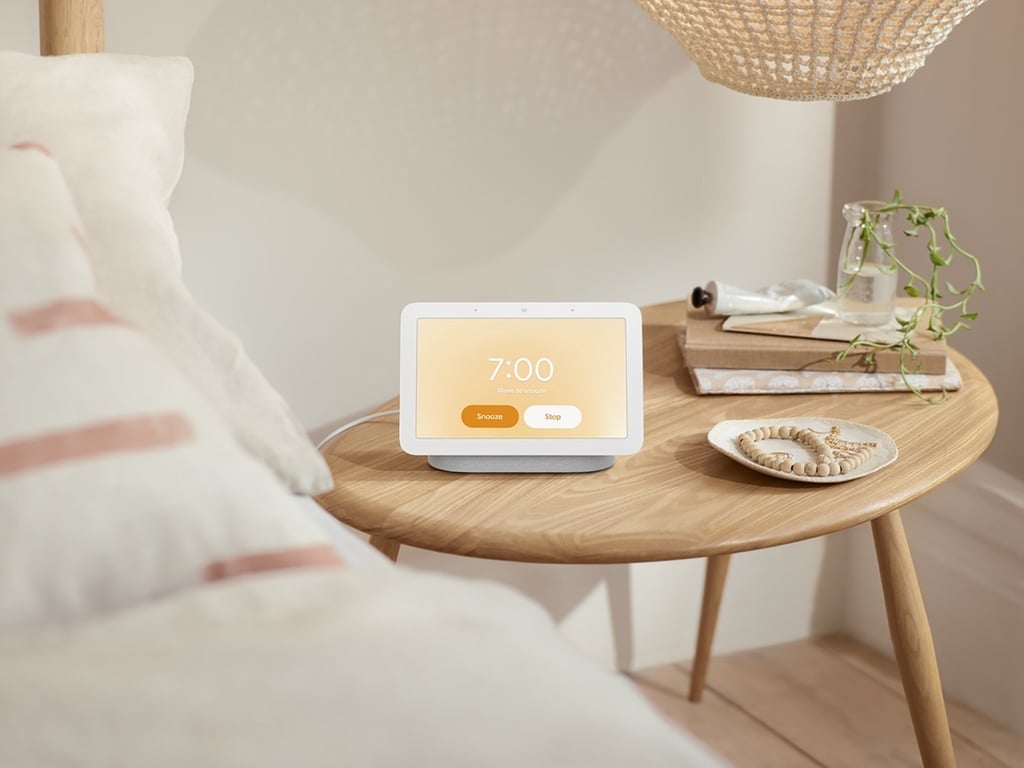Google uses sleep-tracking technology in updated Nest Hub smart home device to promote health and wellness
- The second-generation Nest Hub has a smart display and speaker that can track your sleep patterns using a built-in radar sensor to generate weekly reports
- It can also measure slight motions, like your chest moving while breathing, to determine when you’re sleeping or not

Google’s next internet-connected home device will test whether consumers trust the company enough to let it snoop on their sleep.
New sleep-sensing technology will be a key feature of Google’s latest version of its Nest Hub, a 7-inch smart screen, which was recently unveiled. Like the previous version, the US$100 Nest Hub can display pictures and video in addition to fielding questions and handling household tasks through Google’s voice-activated assistant. It also doesn’t feature a camera.
But the latest Nest Hub’s new trick may help differentiate it from similar devices, such as Amazon’s Echo Show, while also providing a springboard for Google to get more involved in helping people manage their health.
If you allow it, the device will monitor your sleeping patterns from your bedside, negating the need to wear a fitness device or any other potentially bothersome gadget in bed. The feature, which Google intends to offer free of charge for at least the rest of this year, relies on a new chip Google calls Soli, which uses radar to detect motion, including the depth of a person’s breathing.

The Nest Hub is supposed to generate weekly sleep reports with easy-to-understand breakdowns on the length and quality of sleep, how frequently the user gets up at night, and snoring and coughing frequency, along with tips developed in consultation with the American Academy of Sleep Medicine.
Google says it honed the technology by studying 15,000 sleeping people over a combined 110,000 nights.
